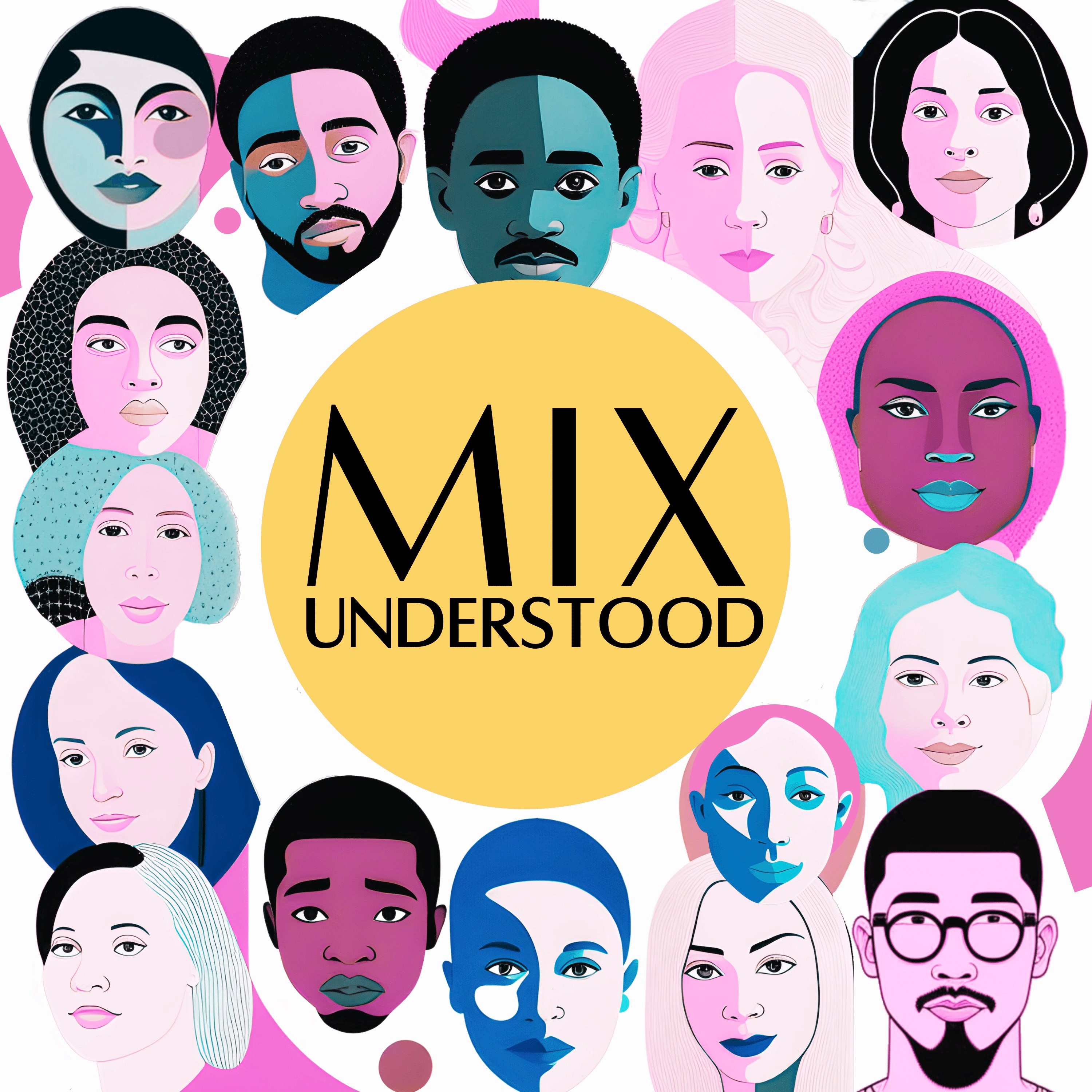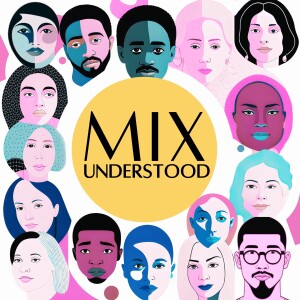Summary:
Imagine working in Hollywood as a mixed actor at a time when showing the ‘mixing of races’ on screen was prohibited, with interracial marriage being banned in more than 30 states in America. Or, having your scenes in your movies be stand alone shots so that you could be easily removed to cater to audiences who would reject your participation in non-menial roles due to your skin color. These are just two examples of the struggles that these incredible, resilient powerhouses faced. We start with Lena Horne and explore her remarkable life, from her beginnings in the famed Cotton Club to becoming a pioneering figure in black history. How, as a mixed race actress, she broke barriers, redefined Hollywood norms, and left an indelible mark on both the entertainment world and society! We then get straight into Fredi Washington, an extraordinary figure who navigated and challenged the rigid racial boundaries of her time, as a multiracial actress, writer and activist. Her legacy is not only in her cinematic achievements such as ‘Imitation of Life’ (1934) but also in her tireless fight for racial equality and representation in the media.
Grounded, inspired and empowered is how we felt after recording this episode!
Episode Breakdown:
Lena horne
Introduction to Lena Horne. An overview of her 70-year career as a singer, actress, dancer, and civil rights activist, including her awards and notable works.
Her mixed heritage, its impact on her career, and her role as a pioneer in breaking racial barriers in Hollywood.
Early life and career beginnings including the history behind her name 'Calhoun', her multiple moves, different schools, her parents divorce and her first job at the Cotton Club.
Lena’s initial Broadway appearance in 1934, leading to her joining Noble Sissle's Society Orchestra, where she began to hone her unique singing style.
Personal life and early struggles: Her time in Pittsburgh, early marriage and children, resulting in a divorce and the split of her two children.
Becoming the first African American woman to tour with an all-white band, and facing discrimination during these tours.
Her journey to being scouted by MGM studios, leading to becoming the first black actress to sign a long term contract with MGM.
The unique clauses she had in her contract against playing demeaning roles and the subsequent backlash she faced from black actors for doing this.
Hollywood’s decision to market her as a Latina. Despite her disagreement, playing a Latina woman in her MGM debut film, ‘Panama Hattie’, where she was darkened up with custom made makeup called ‘Light Egyptian’.
Discussion about modern make-up companies continuing to perpetuate colorism by putting people from certain parts of the world in the same color box by calling their foundation shades things like, ‘Punjab’ and ‘Barcelona’.
A quote from Horne reflecting her identity struggles amidst her career challenges.
How her scenes and songs were often isolated for easy removal in Southern screenings where audiences would have objected to a black woman performing in the film in a ‘non menial’ role.
Playing roles in All-Black Musical Films, such as 'Stormy Weather' where she sang the title song. These were the only movies she played a character ‘that was involved in the plot.’
Becoming the highest-paid black actor in the mid-1940s.
Missed opportunities in film roles due to racial prejudices in Hollywood including
MGM’s 1951 remake of ‘Till the Clouds Go By’. Many say that Lena Horne did not get the role of mixed race character Julie LaVerne, due to to the production’s code ban on showing interracial relationships (as the character marries a white man).
Horne's activism against segregation, her support for the equal treatment of black soldiers leading to her claim of being somewhat blacklisted from the industry for 7 years.
Her successful music career, highlighted by her record-breaking live album at the Waldorf Astoria.
Her marriage to a white man, the societal backlash and threats, and the need to hide it for three years.
Her continuous activism for black rights and the personal tragedies she faced.
Her comeback with her one-woman show 'Lena Horne: The Lady and Her Music' in 1981, leading to a Tony Award.
Our reflection on Lena Horne's Legacy and thoughts on her resilience, the challenges she faced, and her status as a trailblazer for the black community and women.
Fredi Washington
Introduction to Fredi Washington as an American stage and film actress, civil rights activist, performer and writer.
Overview of her early life including her heritage, being born to parents of both European and African American ancestry.
A look at her most notable work - Imitation of Life released in 1934, (nominated for 3 Academy Awards including Best Picture) for which she received critical acclaim.
On why it has been recognized under Time Magazine’s 25 most important films on race.
Our synopsis of the film and reflections of Fredi Washington’s character of Peola.
How, contrary to her character of Peola in ‘Imitation of Life’ (a light skinned black woman who chooses to pass as white), Fredi Washington in real life identified as black.
The difficulty that the film faced with gaining approval from the censor board due to the Hays Code forbidding Hollywood from showing the mixing of races on screen.
A deep dive into the censor board’s issue with the film, namely Fredi Washington’s character of Peola and how Peola’s choice to identify across the racial boundaries was enough to stop the film from being released.
What the studio did to get around the ‘problem’.
Fredi Washington’s life after Imitation of Life. How playing a biracial character went against her as it caused her to be caught in the space between preventing her from fitting into casting boxes.
Her activism and journalism work including being a founder of the Negro Actors Guild of America, a group that advocated for less stereotypical roles and better treatment for black actors.
Washington’s influential writings for The People’s Voice which included important criticisms of racism and sexism in the media.
Personal anecdotes including her link with Duke Ellington and how she used being able to ‘white pass’ to go to all white ice cream parlors for his band.
A discussion about her courage and integrity in a time when she could have chosen to pass as white, but didn't.
Closing thoughts after learning about both women
Links:
Lena Horne
https://www.biography.com/musicians/lena-horne
https://www.pbs.org/wnet/americanmasters/lena-horne-about-the-performer/487/
https://scalar.usc.edu/works/castles-made-of-sand-racial-ambiguity-and-mid-twentieth-century-american-musicians-1/racial-ambiguity-in-the-age-of-integrationism-lena-horne
https://www.nytimes.com/2010/05/10/arts/music/10horne.html
https://en.wikipedia.org/wiki/Lena_Horne
https://www.nytimes.com/2016/03/20/books/review/the-black-calhouns-by-gail-lumet-buckley.html
https://en.geneastar.org/genealogy/hornel/lena-horne
https://www.imdb.com/name/nm0395043/bio/?ref_=nm_ov_bio_sm
Fredi Washington
'Imitation of Life' Film:
https://www.amazon.com/gp/video/detail/amzn1.dv.gti.6aa9f72e-9712-bed3-8dc5-1af32270541e?autoplay=0&ref_=atv_cf_strg_wb
https://en.wikipedia.org/wiki/Fredi_Washington
https://en.wikipedia.org/wiki/Imitation_of_Life_(1934_film)
https://mixedracestudies.org/?tag=fredi-washington
https://www.history.com/news/fredi-washington-black-actress-hollywood-jim-crow-era
https://www.hollywoodreporter.com/news/general-news/hays-code-loving-hollywood-s-89632/
https://cup.columbia.edu/book/hollywoods-censor/9780231143585#:~:text=From%201934%20to%201954%20Joseph,with%20censoring%20the%20American%20screen.
https://broadcast41.uoregon.edu/biography/washington-fredi
Additional info on the Podcast:
Hosts: Amy Maghera -Taub, Hanna-Lee Sakakibara
Music: Mathias Kunzli - www.mathiaskunzli.com
If you liked this episode please share it and subscribe to Mixunderstood where ever you listen to your Podcasts. Please rate and review too! We highly appreciate it!
Follow us:
Instagram: @mixunderstoodpod
Facebook: @mixunderstoodpod
Twitter/X: @Mix_understood
Tik Tok: @mixunderstood.pod
Contact:
Email: mixunderstoodpod@gmail.com




